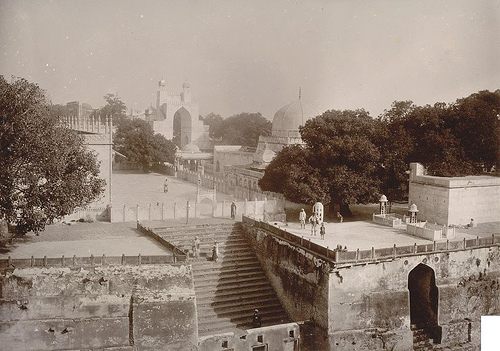Category Archives: Kalaam
On Lunar and Solar Eclipses – From the Malfuzat of Khwaja Uthman Haruni (ra)
The following is an excerpt taken from Session 2 of the Anees ul-Arwah–The Malfuzat of Khwaja Uthman Haruni (rehmatullahi alyhe)–as recorded by Khwaja Moinuddin Chishti (rehmatullahi alayhe):
Regarding the matter of eclipse of the Sun and Moon, their reality is so that the bondsmen of God inclines to prayer and piety out of fear of their Lord taking them to task. The master (may the mercy of God be upon him) said regarding the Sun and Moon eclipse that Ibn Abbass (may the mercy of God be upon him and his father) relates that during the time of the Prophet (peace and blessings be upon him) there occurred a Lunar Eclipse. So, someone asked the Final Messenger a question, upon which the Prophet (pace be upon him) responded that when humanity goes beyond its boundaries in wrong actions or sin then Lunar and Solar eclipses occur. The face of the Sun and that of the Moon are darkened so that creation may take heed (from the metaphor).
The Ilm Qiyaafah mentions that if a Lunar Eclipse occurs in the month of Muharram then in that that year there will be much bloodshed and corruption. If it occurs in the month of Rabi ul-Awwal then there will be increased famine, death and floods. If it occurs in the month of Rabi ul-Aakhir then change of leadership and anarchy will occur in the nation. If it occurs during the month of Jamadi ul-Awwal then there will be overflowing rain and unexpected death. In Jamadi ul-Aakhir there will be bumper crops , affordable prices, and people will have a higher quality of life. If it occurs in the month of Rajab on a Friday then in that year there I will be hunger, calamity, along with darkness in the sky. If it occurs in the month of Shaban, then there will be treaties between people and relative calm. If it occurs during the month of Ramadan, on the first Friday, then there will be increased events of thunder from the sky. In the month of Shawwal men-related sicknesses will be inflicted. If it occurs during the month of Dhu al-Hijjah, then the rest of the year will be full of happiness and relative calm. If it occurs in the month of Muharram then the entire year will be in corruption, and humanity will find fault in others, people will destroy their hereafter and hypocritical wealthy people will be honored over others deserving of it.
After mentioning this, the master busied himself in worship and the people returned home and praise to God for that (lesson).
Translated by Sharaaz Khan
26 Shaban 1432 Hijri
The Gift of a Daughter
Translated by Sharaaz Khan
1o Rajab 1432 Hijri















